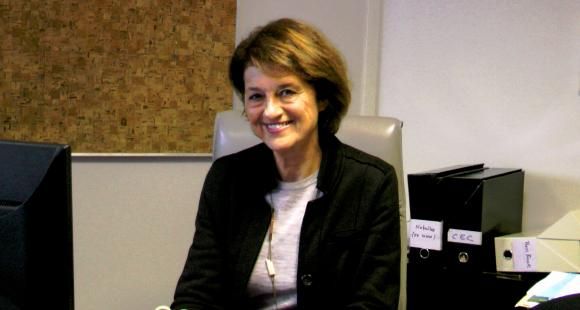
No women won Nobel prizes in 2016.
I'm concerned. The only woman to win the Nobel prize in physics since Marie Curie was Marie Goeppert-Mayer in 1963. The only woman to ever win the Fields Medal was Maryam Mirzakhani in 2014.
What inspired you to write this book, which reminds us that "female scientist" is not an oxymoron?
I was studying Rita Levi-Montalcini, who won a Nobel prize in 1986. A Jewish woman who survived fascism and war, she persevered despite persecution. Her father believed that women should not have the same careers as men. Back then, universities didn't always admit women. I am not particularly feminist but writing this book opened my eyes to the deep misogyny these women faced.
What do these prize winners have in common?
They share a lifelong intellectual curiosity, which they pursued with passion and perseverance, despite the difficulties. They had no access to science education as children. Women who attended university had to catch up on years of schooling. They stayed curious, worked, taught and lectured until they died.
Their fathers were often obstacles or allies.
They were often scientists or doctors themselves. Some encouraged their daughters to study science. However, in the case of Rita Levi-Montalcini and Françoise Barré-Sinoussi, they succeeded despite their fathers' misogynistic influence.
You also discuss other male mentors.
They legitimized these women at a time when women's accomplishments were not recognized. The prizes often go to couples, such as May-Britt Moser and Edvard Moser in 2014. In 1903, the jury selected Pierre Curie. He had to explain that the credit belonged just as much to Marie.
Women limit and censure themselves. They think they're not as smart as their male peers.
What did you learn about current-day female scientists?
Disparities, stereotypes and social pressure have persisted in insidious ways. Women limit and censure themselves. They think they're not as smart as their male peers. Certain North American psychologists preach a biological determinism that has been debunked by neuropsychologists and MRIs. However, girls have internalized the idea that their cognitive capabilities are different.
How can schools encourage girls to pursue high-level scientific careers?
We need to combat stereotypes and women need to stand up for themselves. They should follow their dreams and stop telling themselves they're not as smart. We have to raise the awareness of both women and men.
Have you had to fight to forge your own career?
Before this book, I didn't think so. Then I realized that I never dreamt I'd become a medicine professor and department head. Whereas my male peers chose this career path early on, I believed that my achievements were pure luck, not my own doing.
Read the article (in French)
Hélène Merle-Béral, "17 Femmes prix Nobel de sciences", éditions Odile Jacob, 350 p., 22,90 euros.






